The purpose of this paper is to clarify the purpose, activities and results of the PODIUM of the England by analyzing the PODUM on the occasion of the 2012 London Games. As to the research procedures, this paper first analyzed the activities of the PODIUM, and second referred to the information and discussion on the 2016 JOA special colloquium. In these analysis, this research referred mainly to the magazine of the PODIUM and the information of the JOA special colloquium. Organizationally, it is important for the PODIUM to secure permanent staffs and operation with subsidy from government, establishment of office, and the coalition with LOCOG. Especially, it is suggested that it was effective for the PODIUM to use the Inspire Mark as the 2nd emblem and to acquire reliability by using ‘ac’ as their E-mail account. It seems to be effective as the programs to secure the employment, organization and training of volunteers, transmission and commoditization of information, and to make an incentive consideration to award the good projects. It seems to be important for the transmission of information to use the SNS and website as a tool. As to the dimension of the education and research, it seems to be effective that the introduction of the new courses, experience of student, participation to the research projects, scholarship, university image up by the athletic activities and community service, construction of the research resources, the partnership with public, NPO, and private sectors. It was pointed out as the suggestions for the coalition of the college and university in Japan, the necessity of the early-stage construction of the organization and strategic planning, the promotion activity for the support on campus, and the evaluation of the education and research concerning with the Olympics and Paralympics. Comparing to the PODIUM, it can be said that the coalition of the university and college in Japan is in poor condition as to the organization of the head office including the human power and structural arrangement and budget, the transmission of information from the office using SNS by the permanent staffs, and the arrangement of meeting for events planning and conferences, and the coordination with the 2020 Organizing Committee and many sectors. It is suggested that there are many agendas for the coalition in Japan concerning both with the organization and with the projects including the event and research.
View full abstract
